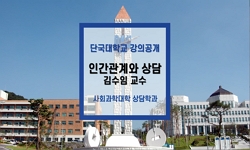It has been known that emotional suppression affects subjective wellbeing(SWB) or interpersonal relationship negatively. But recent research have begun to report that the effects of emotional suppression depend on culture. The aim of this study was to...
http://chineseinput.net/에서 pinyin(병음)방식으로 중국어를 변환할 수 있습니다.
변환된 중국어를 복사하여 사용하시면 됩니다.
- 中文 을 입력하시려면 zhongwen을 입력하시고 space를누르시면됩니다.
- 北京 을 입력하시려면 beijing을 입력하시고 space를 누르시면 됩니다.

정서억제가 주관적 안녕감과 대인관계에 미치는 영향 -경험회피의 중재효과- = Effects of emotional suppression on SWB and interpersonal relationship -in the moderation of experiential avoidance-
한글로보기부가정보
다국어 초록 (Multilingual Abstract)
It has been known that emotional suppression affects subjective wellbeing(SWB) or interpersonal relationship negatively. But recent research have begun to report that the effects of emotional suppression depend on culture. The aim of this study was to investigate if experiential avoidance had moderate effects on SWB or interpersonal relationship, which was not examined in the previous studies. Data was collected from 387 college students(male : 186, female : 180). Results revealed that emotional suppression did not affect SWB or interpersonal relationship. However, experiential avoidance affected SWB or interpersonal relationship negatively. The interactive effect of emotional suppression and experiential avoidance was valid in SWB. The interaction analysis revealed that suppression did not affect SWB, leading to the loss of SWB in the group with low experiential avoidance. Finally results and implication of findings are discussed.
국문 초록 (Abstract)
그동안 정서억제는 주관적 안녕감이나 대인관계에 부정적인 영향을 미치는 것으로 알려졌으나 최근 연구들은 개인이 속한 문화에 따라 영향이 다르다는 사실을 밝히고 있다. 하지만 이 연...
그동안 정서억제는 주관적 안녕감이나 대인관계에 부정적인 영향을 미치는 것으로 알려졌으나 최근 연구들은 개인이 속한 문화에 따라 영향이 다르다는 사실을 밝히고 있다. 하지만 이 연구들은 정서를 억제할 때 경험회피의 영향이 어떤지 규명하지 않아 본 연구에서는 정서억제와 경험회피의 영향을 알아보고자 하였다. 이를 위해 대학생 387명을 대상으로 설문을 실시하여 정서억제와 경험회피가 주관적 안녕감과 대인관계에 미치는 영향을 알아보았다. 그 결과 정서억제는 이전 연구와 마찬가지로 주관적 안녕감이나 대인관계에 영향이 없는 것으로 나타났다. 반면 경험회피는 주관적 안녕감이나 대인관계에 부정적인 영향을 미치고 있었다. 또한 주관적 안녕감에서만 정서억제와 경험회피가 상호작용이 있었고 대인관계에서는 상호작용이 없었다. 상호작용 분석결과 정서를 억제하는 것이 안녕감에 영향을 주지는 않지만 안녕감에는 손실이 있다는 사실이 드러났다. 마지막으로 본 연구결과에 대해 논의하였다.
참고문헌 (Reference)
1 조긍호, "한국인 이해의 개념틀" 나남 2003
2 허재홍, "한국어판 수용-행동 질문지Ⅱ 신뢰도 및 타당도 연구" 한국상담심리학회 21 (21): 861-878, 2009
3 全錫均, "정신분열증 환자의 재활을 위한 사회기술훈련 프로그램의 효과성에 관한 연구" 숭실대학교 1995
4 허재홍, "정서자각, 정서체험, 정서표현이 대학생의 주관적 안녕감에 미치는 영향" 한국상담심리학회 19 (19): 767-784, 2007
5 이은경, "정서억제와 주관적 안녕감: 문화 비교 연구" 한국사회및성격심리학회 23 (23): 131-146, 2009
6 문선모, "인간관계훈련 집단상담의 효과에 관한 일 연구" 19 : 195-204, 1980
7 김연주, "외상 후 스트레스와 알코올 의존과의 관계: 경험회피의 매개효과" 한국상담학회 14 (14): 1647-1662, 2013
8 조영미, "성인애착과 사회불안의 관계: 기본 심리적 욕구 만족과 경험적 회피의 매개효과" 한국상담학회 14 (14): 1227-1245, 2013
9 류연지, "성격 및 욕구수준이 주관적 안녕에 미치는 영향" 연세대학교 1996
10 박철옥, "새터민의 대인관계적 외상 경험, 용서, 경험회피와 외상후 스트레스 증상간의 관계" 한국상담학회 10 (10): 1891-1905, 2009
1 조긍호, "한국인 이해의 개념틀" 나남 2003
2 허재홍, "한국어판 수용-행동 질문지Ⅱ 신뢰도 및 타당도 연구" 한국상담심리학회 21 (21): 861-878, 2009
3 全錫均, "정신분열증 환자의 재활을 위한 사회기술훈련 프로그램의 효과성에 관한 연구" 숭실대학교 1995
4 허재홍, "정서자각, 정서체험, 정서표현이 대학생의 주관적 안녕감에 미치는 영향" 한국상담심리학회 19 (19): 767-784, 2007
5 이은경, "정서억제와 주관적 안녕감: 문화 비교 연구" 한국사회및성격심리학회 23 (23): 131-146, 2009
6 문선모, "인간관계훈련 집단상담의 효과에 관한 일 연구" 19 : 195-204, 1980
7 김연주, "외상 후 스트레스와 알코올 의존과의 관계: 경험회피의 매개효과" 한국상담학회 14 (14): 1647-1662, 2013
8 조영미, "성인애착과 사회불안의 관계: 기본 심리적 욕구 만족과 경험적 회피의 매개효과" 한국상담학회 14 (14): 1227-1245, 2013
9 류연지, "성격 및 욕구수준이 주관적 안녕에 미치는 영향" 연세대학교 1996
10 박철옥, "새터민의 대인관계적 외상 경험, 용서, 경험회피와 외상후 스트레스 증상간의 관계" 한국상담학회 10 (10): 1891-1905, 2009
11 허재홍, "사회불안 발생과정에 자기효능감과 체험회피가 미치는 영향-대학생 집단을 대상으로-" 한국상담심리학회 20 (20): 1173-1189, 2008
12 조긍호, "동아시아 집단주의의 유학사상적 배경" 사회과학연구소 12 (12): 6-42, 2004
13 윤성민, "내현적 자기애가 사회적 상호작용 불안에 미치는 영향: 경험회피의 매개효과" 한국상담심리학회 19 (19): 967-982, 2007
14 Tull, M. T., "role of emotional inexpressivity and experiential avoidance in the relationship between posttraumatic stress disorder symptom severity and aggressive behavior among men exposed to interpersonal violence" 20 : 337-351, 2007
15 Arthaud-Day, M. L., "The subjective well-being construct : a test of its convergent, discriminant, and factorial validity" 74 (74): 445-476, 2005
16 Butler, E. A., "The social consequences of expressive suppression" 3 : 48-67, 2003
17 Diener, E., "The satisfaction with life scale" 49 : 71-75, 1985
18 Park, N., "The role of subjective well-being in positive youth development" 591 : 25-39, 2004
19 Santanello, A. W., "The role of experiential avoidance in the relationship between maladaptive perfectionism and worry" 30 (30): 319-332, 2007
20 Moria, N., "The role of experiential avoidance in psychological functioning after war-related stress in Kosovar civilians" 195 (195): 697-700, 2007
21 Tull, M. T., "The role of experiential avoidance in posttraumatic stress symptoms and symptoms of depression, anxiety, and somatization" 192 : 754-761, 2004
22 Marx, B. P., "The role of emotion in the psychological functioning of adult survivors of childhood sexual abuse" 33 : 563-578, 2002
23 Su, J. C., "The role of culture and self-construal in the link between expressive suppression and depressive symptoms" 44 (44): 316-331, 2013
24 Borkovec, T. D., "The effect of worry on cardiovascular response to phobic imagery" 28 : 69-73, 1990
25 Horowitz, M. J., "Stress response syndromes" Aroson 1986
26 Schlein, A., "Relationship enhancement" Josey-Bass 1977
27 Pennebaker, J. W., "Psychophysiology of confession : Linking inhibitory and psychosomatic proceses" 52 (52): 781-793, 1987
28 Ireland, S. J., "Problems of drug dependence. 1993: Proceedings of the 55th Annual Scientific Meeting (National Institute of Drug Abuse Monograph Series No. 141, p.158)" U. S. Government Printing Office 1994
29 Gratz, K. L., "Preliminary data on the relationship between anxiety sensitivity and borderline personality disorder : The role of experiential avoidance" 42 : 550-559, 2008
30 Wegner, D. M., "Polluting the stream of consciousness : The effect of thought suppression on the mind's environment" 15 : 141-152, 1991
31 Wegner, D. M., "Paradoxical effects of thought suppression" 53 : 5-13, 1987
32 Gross, J. J., "Individual differences in two emotion regulation processes : Implications for affect, relationships, and wellbeing" 85 : 348-362, 2003
33 John, O. P., "Healthy and unhealthy emotion regulation : Personality processes, individual differences, and life span development" 72 : 1301-1333, 2004
34 Diener, E., "Handbook of emotions" Guilford 405-415, 1993
35 Eid, M., "Global judgments of subjective well-being : Situational variability and long-term stability" 65 : 245-277, 2004
36 Borkovec, T. D., "Generalized anxiety disorder: Advances in research and practice" Guilford Press 77-108, 2004
37 Wegner, D. M., "Fanning old flames : Emotional and cognitive effects of suppressing thoughts of a past relationship" 68 : 782-792, 1995
38 Kennedy-Moore, E., "Expressing emotion: myths, realities, and therapeutic strategies" Guilford 1999
39 Batten, S. V., "Experiential avoidance and high risk sexual behavior in survivors of child sexual abuse" 10 : 101-120, 2001
40 Hayes, S. C., "Experiential avoidance and behavioral disorders: A functional dimensional approach to diagnosis and treatment" 64 : 1152-1168, 1996
41 Kashdan, T. B., "Expanding the topography of social anxiety : An experience-sampling assessment of positive emotions, positive events, and emotion suppression" 17 : 120-128, 2006
42 Karekla, M., "Emotional avoidance and panicogenic responding to a biological challenge procedure" 35 (35): 725-746, 2004
43 Feldner, M. T., "Emotional avoidance : an experimental test of individual differences and response suppression using biological challenge" 41 (41): 403-411, 2003
44 Pennebaker, J. W., "Emotion, Disclosure, & Health" American Psychological Association 1995
45 Butler, E. A., "Emotion regulation and culture: Are the social consequences of emotion suppression culture- specific?" 7 (7): 30-48, 2007
46 Gross, J. J., "Emotion regulation : Affective, cognitive, and social consequences" 39 : 281-291, 2002
47 Mendolia, M., "Effect of talking about a stressful event on arousal: Does what we talk about a difference?" 64 (64): 282-293, 1993
48 Kitayama, S., "Culture, emotion, and well-being: Good feelings in Japan and the United States" 14 : 93-124, 2000
49 Erbes, C. R., "Couple therapy with combat veterans and their partners" 64 : 972-983, 2008
50 Spira, A. P., "Avoidance-oriented coping as a predictor of anxiety-based physical stress : A test using biological challenge" 18 : 309-323, 2004
51 Reddy, M. K., "Associations among experiential avoidance, couple adjustment, and interpersonal aggression in returning Iraqi war veterans and their partners" 79 (79): 515-520, 2011
52 Gross, J. J., "Antecedent-and response-focused emotion regulation : Divergent consequences for experience, expression, and physiology" 74 : 224-237, 1998
53 Cheung, R. Y. M., "Anger suppression, interdependent self-construal, and depression among Asian American and European American college students" 16 : 517-525, 2010
54 Frisch, M. B., "Advances in quality of life: Theory and research" Kluwer 207-241, 2000
55 Hayes, S. C., "Acceptance-commitment therapy: An experiential approach to behavior therapy" Guilford Press 1999
56 Hayes, S. C., "Acceptance and change: Content and context in psychotherapy" Context Press 13-32, 1994
57 Sanchez-Craig, M., "A therapist's manual for secondary prevention of alcohol problems: Procedures for searching moderate drinking and abstinence" Addiction Research Foundation 1984
58 Bond, F. W., "A revised measure of psychological flexibility and acceptance"
동일학술지(권/호) 다른 논문
-
직무만족유형에 따른성격특성, 귀인양식, 불만족반응행동의 차이탐색
- 한국상담학회
- 박혜성
- 2014
- KCI등재
-
- 한국상담학회
- 이정주
- 2014
- KCI등재
-
알아차림 프로그램이초등 교사들의 상위인지자각과 수용행동에 미치는 효과
- 한국상담학회
- 김용수
- 2014
- KCI등재
-
인터넷·스마트폰 중독 성향 자녀를 둔 어머니의 스트레스에 관한 현상학적 연구
- 한국상담학회
- 우정애
- 2014
- KCI등재
분석정보
인용정보 인용지수 설명보기
학술지 이력
| 연월일 | 이력구분 | 이력상세 | 등재구분 |
|---|---|---|---|
| 2026 | 평가예정 | 재인증평가 신청대상 (재인증) | |
| 2020-01-01 | 평가 | 등재학술지 유지 (재인증) |  |
| 2017-01-01 | 평가 | 등재학술지 유지 (계속평가) |  |
| 2014-09-02 | 학회명변경 | 영문명 : 미등록 -> Korean Counseling Association (KCA) |  |
| 2013-01-01 | 평가 | 등재학술지 유지 (등재유지) |  |
| 2011-05-11 | 학술지명변경 | 외국어명 : The korea jounal of counseling -> Korea Journal of Counseling |  |
| 2010-01-01 | 평가 | 등재학술지 유지 (등재유지) |  |
| 2008-01-01 | 평가 | 등재학술지 유지 (등재유지) |  |
| 2005-03-22 | 학술지명변경 | 외국어명 : 미등록 -> The korea jounal of counseling |  |
| 2005-01-01 | 평가 | 등재학술지 선정 (등재후보2차) |  |
| 2004-01-01 | 평가 | 등재후보 1차 PASS (등재후보1차) |  |
| 2003-01-01 | 평가 | 등재후보학술지 선정 (신규평가) |  |
학술지 인용정보
| 기준연도 | WOS-KCI 통합IF(2년) | KCIF(2년) | KCIF(3년) |
|---|---|---|---|
| 2016 | 2.19 | 2.19 | 2.43 |
| KCIF(4년) | KCIF(5년) | 중심성지수(3년) | 즉시성지수 |
| 2.45 | 2.48 | 3.426 | 0.36 |





 KCI
KCI DBpia
DBpia






